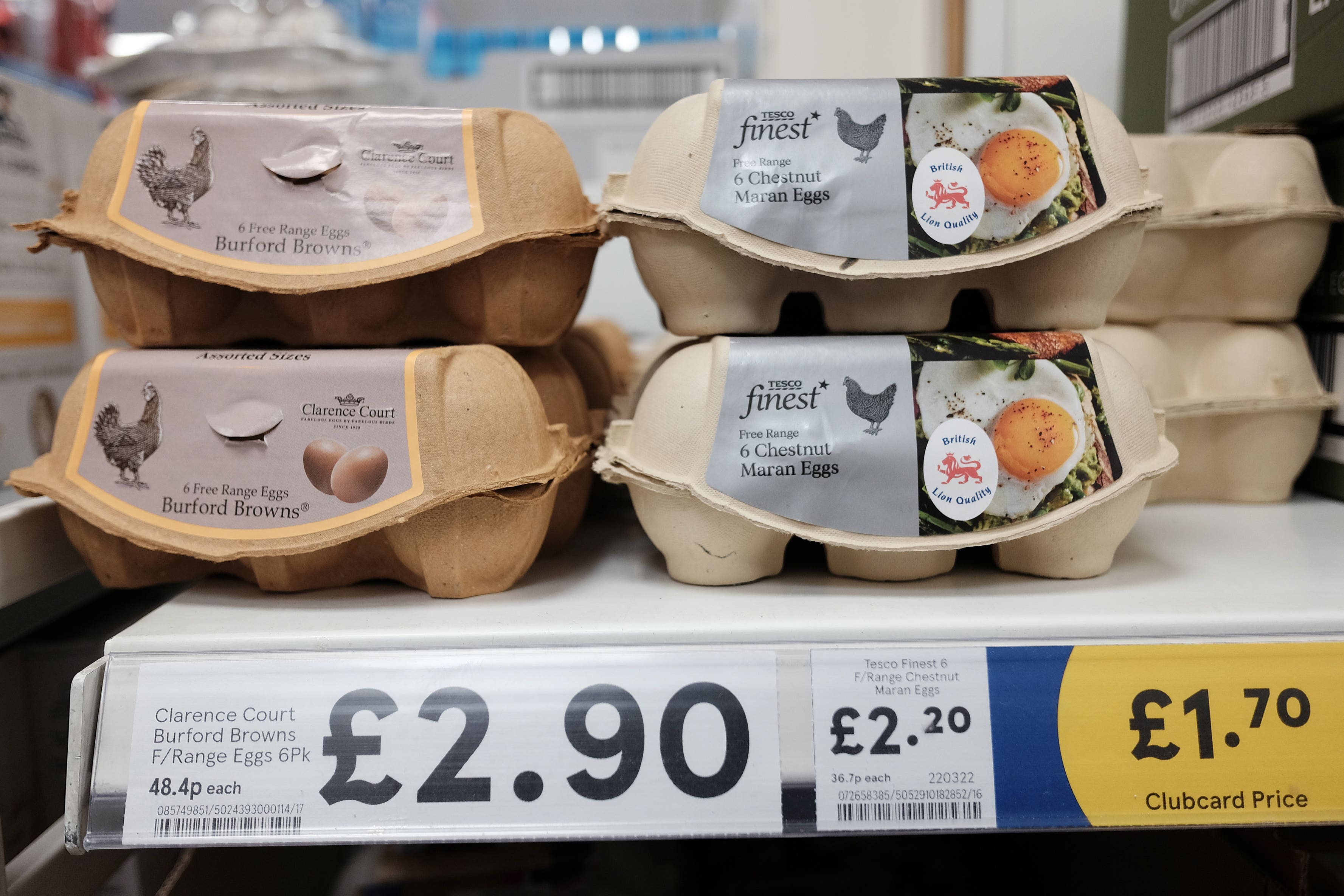
Tesco has become the latest supermarket giant to ration eggs for customers because of supply chain issues.
Shoppers will only be able to buy a maximum of three boxes, and this will be monitored when they get to the checkout.
Farmers are currently facing two major issues affecting egg supplies, including soaring costs and an outbreak of avian flu.
Tesco’s decision follows that of Aldi and Lidl, which started rationing eggs for customers last week.
It came after shoppers started posting images of empty shelves or notices about supply issues affecting egg stocks in stores.
Tesco, Britain’s largest supermarket chain, said it made the decision as a precautionary measure at this stage. It added that it’s working hard with its suppliers to prevent a shortage of eggs but has brought in the restriction as a precaution.

Farmers have faced a host of issues impacting egg supplies, including rising energy costs. Wheat prices have also risen due to the war in Ukraine, and grain is a key part of chicken feed.
The rising prices have come at the same time as Britain’s biggest-ever outbreak of avian flu, which has led to the government ordering farmers to keep all poultry and any captive bird inside.
Millions of birds have died or been culled in the last year alone. There have been 118 known cases of the virus since October 1 this year.
The Independent previously reported comments from the British Free Range Egg Producers Association saying the bird flu outbreak has resulted in laying hens being culled.
A spokesman said: “We warned ten months ago that producers would pause or halt production if they weren’t paid a fair price for their product, and that the knock-on effect would be fewer hens and fewer eggs.”
The industry body asked supermarkets to increase prices earlier this year, warning there could be a mass exodus of egg farmers and empty shelves without more support.
“Many of our members are losing money on every egg laid, and our data shows that even those who are making a small profit do not see a long-term future,” it has now said.
“Our survey of 163 free range producers this week showed that 33 per cent had either reduced their flock sizes, paused production temporarily or left the industry all together.
“Fewer hens means fewer eggs and we warned in March that eggs could be in short supply by Christmas.
“Egg supply naturally tightens at this time of year as businesses and individuals prepare for Christmas, which may be exacerbating the situation. On top of this, avian influenza has resulted in the culling of laying hens too.”







